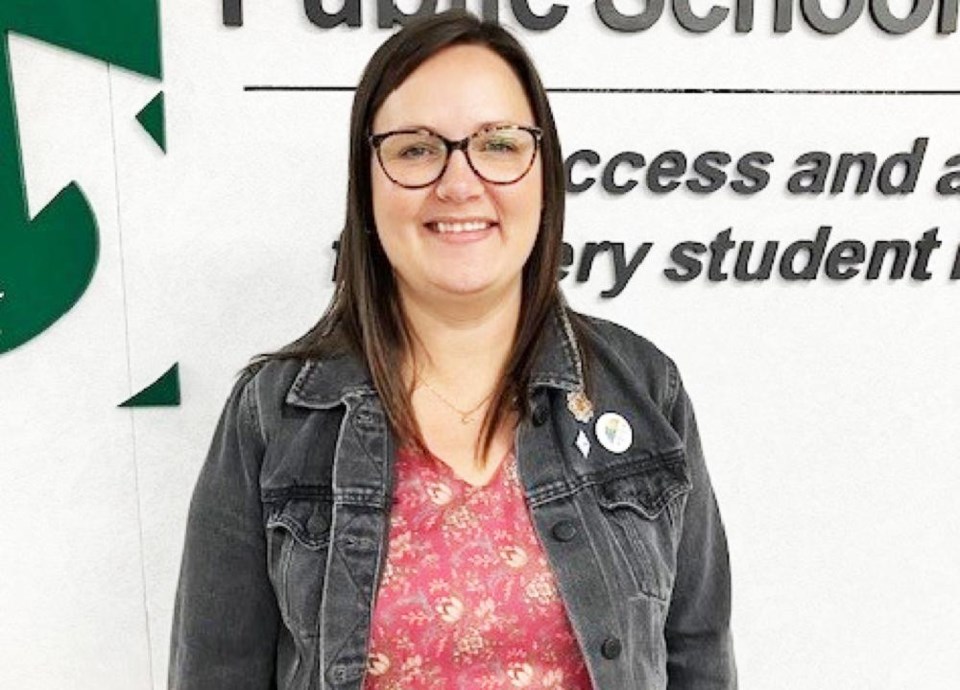WEYBURN – Now in her fourth consecutive year as president of the South East Cornerstone Teachers’ Association, (SECTA), Whitney Paul-Joseph continues to make connections with the division’s board of trustees on a regular basis.
Paul-Joseph was in the conference room on October 11 to speak to the board members during their regular business meeting. She spoke to them about the ongoing work of the association and delivered a repeat message that cuts to government funding has led to a series of challenges for both the Board and teachers.
Paul-Joseph is an arts education teacher and visual art educator for Grades 7-12 in Redvers School. She receives 50 per cent release time to tend to SECTA matters and is also an elected board member of the Saskatchewan Teachers’ Federation.
“I have worked a lot with principals and staff members over the phone, through emails and in person,” she told the board. “Being given this release time helps showcase your value in the role I have with working with all of you, the board, the school division and team meetings, exact time allotted in a calendar and time for just talking about individual needs for students and schools.
“Teachers’ plates are extremely full. Teacher burnout is at a peak already in the school year and we are only into October. We often ask, what can we take off the plate? What can we do to lighten the load? What are ways we can work smarter, not harder, to value teacher time? This leads to my next point,” she said.
Paul-Joseph launched into the topic of government funding and the cuts that had been inflicted on the education system provincially as well as regionally. The cuts, she said, have led to difficult decisions in the past few years including larger class sizes, fewer teachers and resources to support students.
She cited the loss of the Cyber Stone Virtual School as one example of the loss of an incredible local support system and the impact is now being felt in the schools as they go through the transition.
“All these cuts to funding have a huge impact on staff morale, workload intensification and, unfortunately, staff burnout. We see this across our entire division,” she said.
Paul-Joseph added they have met with local MLAs and attended the rally for public education in April and are attending mini-rallies province wide in the next few weeks, and the Tell Them Tuesday campaign from the STF is also on the agenda.
“Our voices have been loud, but I still don’t think government is listening and it is taking its toll on teachers and our classrooms,” she insisted.
Teachers are doing the work and providing best support possible for students but with the realization that what they can do is very limited since time, resources and supports have been stretched thin.
“I worry a lot about education in our province because I do not think that what we are doing is sustainable,” she said while concluding her remarks.
Board chairwoman Audrey Trombley said the solid relationship the board has with the SECTA is excellent and appreciated while trustee Kevin Keating noted that they too continue to advocate for more funding.



